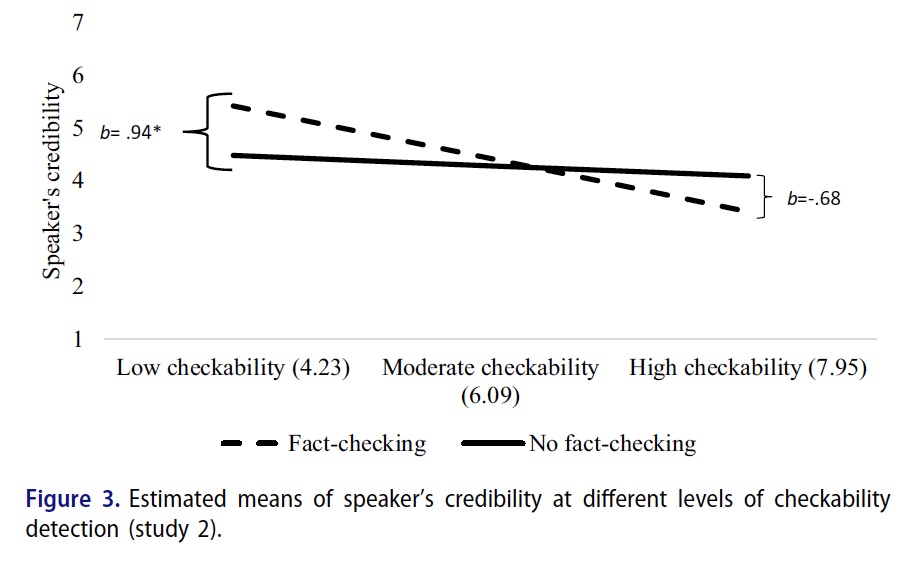
It’s finally out in the world! Ever wonder how the presence of opinion statements can influence the efficacy of fact-checking initiatives? We did, too. 🧵
Unchecked vs. Uncheckable: How Opinion-based Claims can Impede Corrections of Misinformation
doi.org/10.1080/152054…
1/12
Unchecked vs. Uncheckable: How Opinion-based Claims can Impede Corrections of Misinformation
doi.org/10.1080/152054…
1/12
Recent work suggests that people may have difficulty differentiating opinion- from fact-based claims, especially when they are congruent with pre-existing beliefs.
2/12
2/12

This can pose a challenge for fact-checking misinformation, as fact-checks only address the validity of verifiable, non-opinion claims in a particular message.
3/12
3/12
In other words: If a fake news article contains a mixture of fact and opinion claims, a fact-check of that article may only denote the verifiable claims as false and ignore the opinion-statements … because we know that opinions can’t be “right” or “wrong”!
4/12
4/12
If people sometimes mistake opinions as verifiable, fact-based statements, then they may think that the fact-checking message only indicates that part of the story is false. This would result in reduced efficacy of the fact-check message in correcting misinformation.
5/12
5/12
As beautifully summarized by Merpert et al. (2018),
"without being able to identify if information presented is fact or opinion, fact-checkers and the public alike would have no basis on which to begin their scrutinizing”
6/12
"without being able to identify if information presented is fact or opinion, fact-checkers and the public alike would have no basis on which to begin their scrutinizing”
6/12
In three experiments (N = 1102) we find support for this hypothesis using the partisan topic of gun control. Gun control has emerged as one of the most polarizing issues in modern American politics, and represents one of the most fact-checked topics in political discourse.
7/12
7/12
In Exp 1, we find that fact-checking is less effective when it attempts to correct statements that include both fact- and opinion-based claims.
[Outcomes: Perceived message accuracy and speaker credibility]
8/12
[Outcomes: Perceived message accuracy and speaker credibility]
8/12

Exp 2 replicated and expanded these findings showing that correction of misinformation through fact-checking is contingent on people’s ability to accurately distinguish facts from opinions.
9/12

9/12


In Exp 3, we find support that the observed effects are driven by motivated reasoning rather than actual inability to ascertain fact-based claims. Apparently people are pretty good at differentiating facts from opinions when high accuracy means eligibility for a $40 bonus.
10/12
10/12
Put differently: It’s not that people *can’t* differentiate facts from opinions, it’s that they have difficulty doing so when those opinions are tantalizing enough that they want them to be facts, or when those facts are "absurd" enough that they might as well be opinions.
11/12
11/12
Together these results suggest that distinguishing facts from opinions is a major hurdle to effective fact-checking. Not to mention how we get people to seek out fact-checking information in the first place …
But we’ll save that for another paper.
12/12
But we’ll save that for another paper.
12/12
• • •
Missing some Tweet in this thread? You can try to
force a refresh


